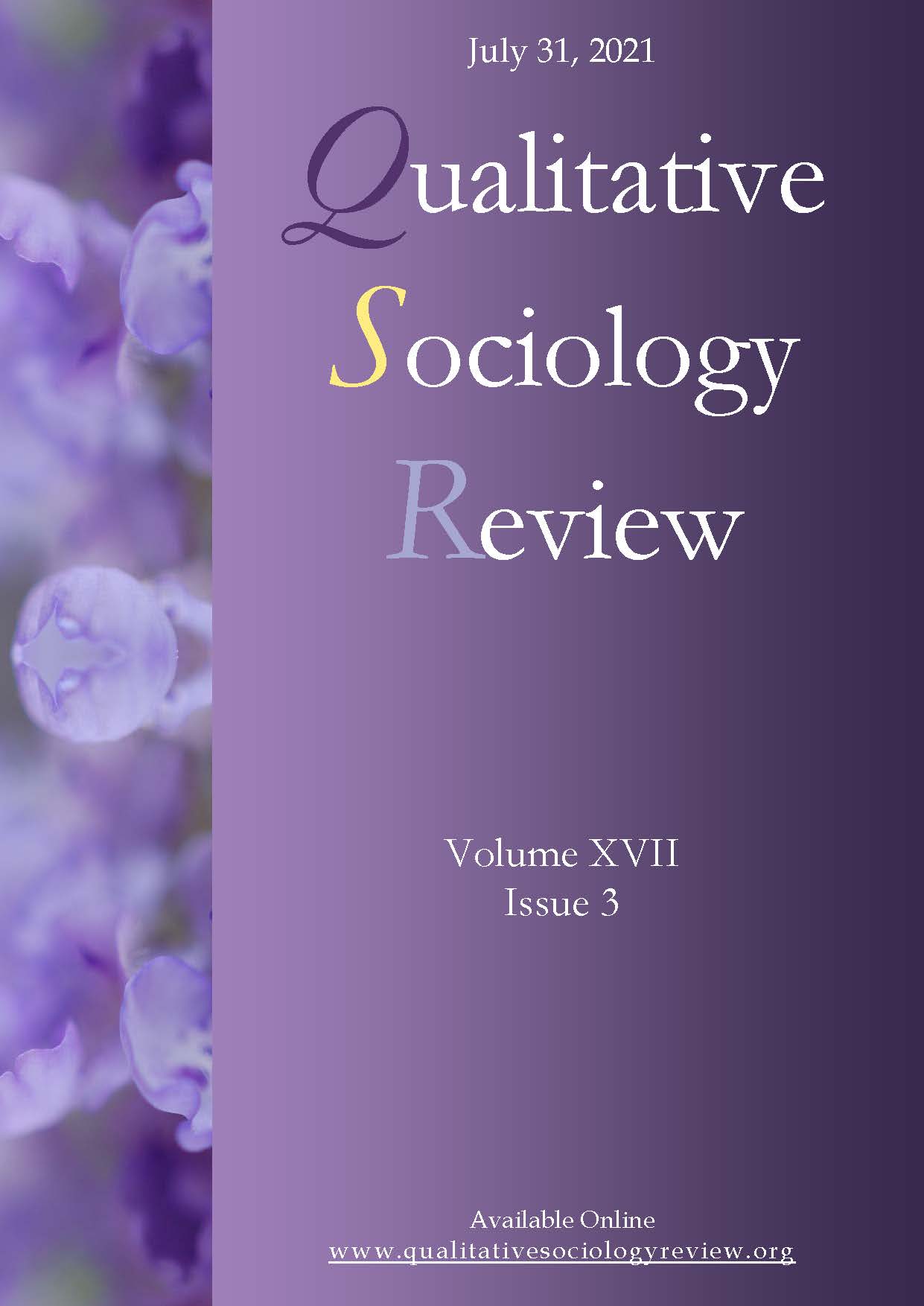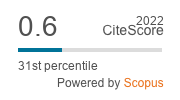An Exploratory Study on American- Born Imams: Negotiating Pastoral Responsibilities and Expectations
DOI:
https://doi.org/10.18778/1733-8077.17.3.05Keywords:
islam, imam, muslim, mosque, american, symbolic interactionismAbstract
Symbolic interactionism, applied in the context of Muslim clerics, suggests that society is constructed based on lived experiences and shared symbolic meanings where people see themselves and the social environment through the eyes of others. For this study, data collected from in-depth interviews were examined to investigate the viewpoints and occupational pathways of American born imams. Thus, this study explored the responsibilities assigned to imams and their communal objectives. Overall, this study found several challenges that imams experienced, professional and organizational. Utilizing symbolic interactionism, these issues were explicated, and the following overarching themes were generated: imams received inadequate training as religious leaders in their communities, relationships between the mosque board and an imam can directly reinforce or mitigate a challenging work environment, and it is most advantageous for American communities to hire American-born imams over foreign-born imams. The findings indicate that organizational support extended to imams from mosque boards leads to not only an amicable relationship but more productive community engagement.
Downloads
References
Abbasi, Farha and Reham F. Gassas. 2016. “Stress and Resilience for Imams and Chaplains.” Dearborn, MI. Presentation.
Google Scholar
Abdul-Hakeem, Nazeeh Z. 2015. The Athaan in the Bull City, Building Durham’s Islamic Community. Morrisville, NC: Lulu Publishing Services.
Google Scholar
Abu-Bader, Soleman H., M. Taqi Tirmazi, and Fariyal Ross-Sheriff. 2011. “The Impact of Acculturation on Depression among Older Muslim Immigrants in the United States.” Journal of Gerontological Social Work 54(4):425-448.
Google Scholar
DOI: https://doi.org/10.1080/01634372.2011.560928
Abuelezz, Muhammad. 2011. A Survey of American Imams: Duties, Qualifications, and Challenges. A Quantitative and Religious Analysis. Master’s thesis, Department of Religion, University of Georgia, Athens, GA.
Google Scholar
Al-Ghazali, Muhammad. 1999. Fiqh Us-Seerah. Understanding the Life of Prophet Muhammad. Riyadh, Saudi Arabia: IIPH.
Google Scholar
Al-Islam, Amir. 2006. “Educating American Muslim Leadership (Men and Women) for the Twenty-First Century.” Teaching Theology and Religion 9(2):73-78.
Google Scholar
DOI: https://doi.org/10.1111/j.1467-9647.2006.00265.x
Al-Krenawi, Alean. 2016. “The Role of the Mosque and Its Relevance to Social Work.” International Social Work 59(3):359-367.
Google Scholar
DOI: https://doi.org/10.1177/0020872815626997
Ali, Osman M., Glen Milstein, and Peter M. Marzuk. 2005. “The Imam’s Role in Meeting the Counseling Needs of Muslim Communities in the United States.” Psychiatric Services 56(2):202-205.
Google Scholar
DOI: https://doi.org/10.1176/appi.ps.56.2.202
Ansary, Tamim. 2009. Destiny Disrupted. New York: Public Affairs.
Google Scholar
Aronson, Elliot, Timothy D. Wilson, and Robin M. Akert. 2007. Social Psychology. Upper Saddle River, NJ: Pearson Prentice Hall.
Google Scholar
Askar, Anas. 2017. American Born Imams: Negotiating Clerical Responsibilities and Expectations. Master’s thesis, Department of Sociology, East Carolina University, Greenville, SC.
Google Scholar
Babbie, Earl. 2004. The Practice of Social Research. Belmont, CA: Thomson Wadsworth.
Google Scholar
Bagby, Ihsan. 2009. “The American Mosque in Transition: Assimilation, Acculturation and Isolation.” Journal of Ethnic and Migration Studies 35(3):473-490.
Google Scholar
DOI: https://doi.org/10.1080/13691830802704640
Bagby, Ihsan. 2012. “The American Mosque 2011 Report Number 1 and 2 from the US Mosque Study 2011.” Islamic Society of North America 1, 2:1-58.
Google Scholar
Blumer, Herbert. 1969. Symbolic Interactionism: Perspective and Method. Englewood Cliffs, NJ: Prentice-Hall.
Google Scholar
Burnett, John. 2013. “As Islam Grows, U.S. Imams in Short Supply.” NPR, February 10. Retrieved June 14, 2021 http://www.npr.org/2013/02/10/171629187/as-islam-grows-u-s-imams-inshort-supply
Google Scholar
Charon, Joel M. 1979. Symbolic Interactionism: An Introduction an Interpretation an Integration. Englewood Cliffs, NJ: Prentice-Hall.
Google Scholar
Cooley, Charles Horton. 1927. Social Organization. A Study of the Larger Mind. New York: Charles Scribner’s Sons.
Google Scholar
Denzin, Norman K. and Yvonna S. Lincoln. 2013. The Landscape of Qualitative Research. Thousand Oaks, CA: Sage Publications.
Google Scholar
Djedi, Youcef. 2011. “Max Weber, Islam and Modernity.” Max Weber Studies 11(1):35-67.
Google Scholar
DOI: https://doi.org/10.15543/MWS/2011/1/4
Gattino, Silvio et al. 2016. “Muslim Acculturation in a Catholic Country: Its Associations with Religious Identity, Beliefs, and Practices.” Journal of Cross-Cultural Psychology 47(9):1194-1200.
Google Scholar
DOI: https://doi.org/10.1177/0022022116661244
Haddad, Yvonne Y. 1999. “The Globalization of Islam.” Pp. 601-641 in The Oxford History of Islam, edited by J. L. Esposito. New York: Oxford University Press.
Google Scholar
Haddad, Yvonne Y. and Adair T. Lummis. 1987. Islamic Values in the United States. New York: Oxford University Press.
Google Scholar
Hammersley, Martyn. 2010. “The Case of the Disappearing Dilemma: Herbert Blumer on Sociological Method.” History of the Human Sciences 23(5):70-90.
Google Scholar
DOI: https://doi.org/10.1177/0952695110384442
Howard, Judith A. 2000. “Social Psychology of Identities.” Annual Review of Sociology 26(1):367-393.
Google Scholar
DOI: https://doi.org/10.1146/annurev.soc.26.1.367
Ibn Khaldun, Abdur Rahman M. 1967. Al-Muqaddimah. Princeton, NJ: Princeton University Press.
Google Scholar
Lipka, Michael. 2017. “Muslims and Islam: Key Findings in the U.S. and around the World.” Pew Research Center, February 27. Retrieved June 14, 2021 http://www.pewresearch.org/facttank/2017/02/27/muslims-and-islam-key-findings-in-the-u-s-andaround-the-world/
Google Scholar
Manley, Marc. 2015. “Statement of Resignation from Islamic Center of Inland Empire as Religious Director.” Marc Manley, June 29. Retrieved June 14, 2021 http://www.marcmanley.com/statement-of-resignation-from-islamic-center-of-inland-empire-as-religious-director/
Google Scholar
Morgan, John H. 2010. “Professionalization of Islamic Ministry in America: Components of the Legitimizing Process in Western Society.” Journal for the Study of Religions and Ideologies 9(26):114-127.
Google Scholar
Morgan, John H. 2013. “Disentangling Religion and Culture: Americanizing Islam as the Price of Assimilation.” International Journal of Islamic Thought 4:28-36.
Google Scholar
DOI: https://doi.org/10.24035/ijit.04.2013.004
Nyang, Sulayman S. 1999. Islam in the United States of America. Chicago: ABC International Group.
Google Scholar
Omar, Abdul Mannan. 2005. Dictionary of the Holy Quran. Hockessin, DE: Noor Foundation International.
Google Scholar
Pooler, David K. 2011. “Pastors and Congregations at Risk: Insights from Role Identity Theory.” Pastoral Psychology 60(5):705-712.
Google Scholar
DOI: https://doi.org/10.1007/s11089-011-0356-5
Rashaad, Khalis. 2015. “A Case for the Bivocational Imam.” Ummah Wide, July 07. Retrieved June 14, 2021 https://ummahwide.com/a-case-for-the-3141bd455889#.bezl7d0cq
Google Scholar
Rock, Paul. 1979. The Making of Symbolic Interactionism. Totowa, NJ: Rowman and Littlefield.
Google Scholar
DOI: https://doi.org/10.1007/978-1-349-04084-1
Scheuringer, Brunhilde. 2016. “Multiple Identities: A Theoretical and Empirical Approach.” European Review 24(3):397-404.
Google Scholar
DOI: https://doi.org/10.1017/S1062798716000120
Stark, Rodney and Lynne Roberts. 1996. Contemporary Social Research Methods. Bellevue, WA: MicroCase Corporation.
Google Scholar
Ul Mobeen, Noor. 2012. Muslim Leadership in America. Ph.D. dissertation, Department of Agricultural Leadership, Education & Communication, Texas A&M University, College Station, TX.
Google Scholar
Van Sertima, Ivan. 2003. They Came Before Columbus. The African Presence in Ancient America. New York: Random House Trade Paperbacks.
Google Scholar
Vitello, Paul. 2010a. “Taking a Break from the Lord’s Work.” The New York Times, August 01. Retrieved June 14, 2021 http://www.nytimes.com/2010/08/02/nyregion/02burnout.html?_r=0
Google Scholar
Vitello, Paul. 2010b. “Islamic Center Exposes Mixed Feelings Locally.” The New York Times, August 19. Retrieved June 14, 2021 http://www.nytimes.com/2010/08/20/nyregion/20muslims.html?pagewanted=all
Google Scholar
Weber, Max. 1993. The Sociology of Religion. Boston, MA: Beacon Press.
Google Scholar
Wehr, Hans. 1994. A Dictionary of Modern Written Arabic: Arabic-English. Urbana, IL: Spoken Language Services.
Google Scholar
Zaman, Saminaz. 2008. “From Imam to Cyber-Mufti: Consuming Identity in Muslim America.” The Muslim World 98(4):465-474.
Google Scholar
DOI: https://doi.org/10.1111/j.1478-1913.2008.00240.x
Downloads
Published
How to Cite
Issue
Section
License

This work is licensed under a Creative Commons Attribution-NonCommercial-NoDerivatives 4.0 International License.











